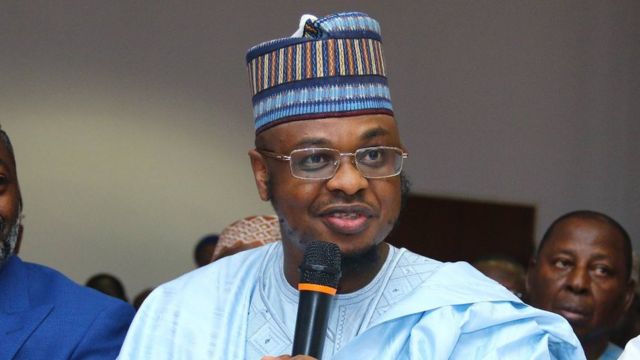In a move to effectively oversee and measure the progress of the Federal Government’s digitization agenda in Nigeria, President Muhammadu Buhari has ratified the transfer of the National Identity Management Commission (NIMC) to the Federal Ministry of Communications and Digital Economy (FMCDE).
A press statement from the Spokesperson of the Federal Ministry of Communications and Digital Economy, Mrs Uwa Suleiman read; “the approval for the transfer was based on Mr President’s consideration for the critical role of NIMC towards the realisation of the objectives of the National Digital Economy Policy and Strategy for a Digital Nigeria (NDEPS).”
It may be recalled that NIMC is mandated to create, manage, maintain and operate the National Identity Database established by the NIMC Act, 2007. In an effort to realise this, the commission has so far registered around 41 million eligible enrollees for the National Identity Number (NIN). The Nigerian Communications Commission (NCC) on the other hand has details of over 191 million mobile subscribers.
Uwa Suleiman
The statement stressed the need for NIMC to work closely together with the National Information Technology Development Agency (NITDA) and the Nigerian Communications Commission (NCC) under the aegis of one Ministry, citing the success NITDA had achieved in the development and implementation of the Nigeria Data Protection Regulation (NDPR).
The new development comes in the wake of the commission’s response to concerns expressed by Nigerians regarding the acquisition of the national identity card through the NIMC Mobile App.
NIMC under the Presidency
Prior to the transfer of the NIMC to the Ministry of Communications and Digital Economy, the commission was directly under the administration of the Nigerian Presidency.
Due to the needless hassles involved before Nigerians were able to get a national identity card, the commission had recently attempted to digitize the post-NIN process with the introduction of the NIMC Mobile App. This, it hoped, would enable people easily to obtain the card after successfully registering for the NIN.
Many Nigerians had complained about not being able to have their National Identity Number (NIN) verified during registration or mentioned not being able to download or install the app.
After igniting hopes that several Nigerians could now access their national identity cards through a seamless online process using their mobile phones, the commission quickly dashed those hopes when it disclosed that the “app was yet to be officially approved for public consumption.”
Nigerians were not satisfied with NIMC’s response, however, as many could not understand why the app was released if it was still in its test stage and not ready for public use.
Will the Transfer of NIMC to FMCDE Solve Persistent Identity Challenges?
Over a five-year period, the NIMC through its NIN registration has so far been able to allocate national identity cards to just about 15% (30 million) of the entire Nigerian populace. This means over 150 million Nigerians (75%) are still without any means of identification whatsoever.
From the FMCDE statement, NIMC has so far registered 41 million Nigerians for the NIN. Going by this figure, about 73% of Nigerians with NIN have been able to obtain their national identity cards. The downside to this estimate is that it accounts for a very small minority of Nigeria’s population.
The vibrant Federal Minister of Communications and Digital Economy, Dr Isa Ali Pantami has received plaudits for his astute handling of the Ministry’s affairs and it is expected that NIMC will realise its objectives of giving every Nigerian a unique identity under his leadership.


According to the statement, the President’s directives for NIMC to be under the supervision of the Federal Ministry of Communications and Digital Economy is an illustration of Mr President’s vote of confidence on Dr Isa Ali Ibrahim (Pantami), FNCS, FBCS, FIIM, the Honourable Minister of Communications and Digital Economy, based on an unprecedented performance.
Moreover, another strong point to consider is the fact that the NCC has the details of more than 191 million mobile subscribers which accounts for over 96% of about 200 million Nigerians. This presents NIMC with huge leverage in terms of access to citizens’ details contained in NCC’s database.
Other things being equal, NIMC should be able to easily register almost every Nigerian for the NIN and also validate the details provided by people to guard against impersonation and identity theft.
Working together with NITDA should expectedly make it faster for NIMC to fully adopt and implement its digitization blueprint such that there will not be a repeat of the commission testing an app when it should be releasing it for public use.
Summary
The decision by the Presidency to transfer the NIMC to the FMCDE has come at a critical moment in time when the commission has come to accept that it needs to digitize its registration and operation processes to effectively cater to the identity needs of Nigerians post-COVID-19.
Although the transfer may not immediately yield expected results, it is a calculated risk worth taking.






